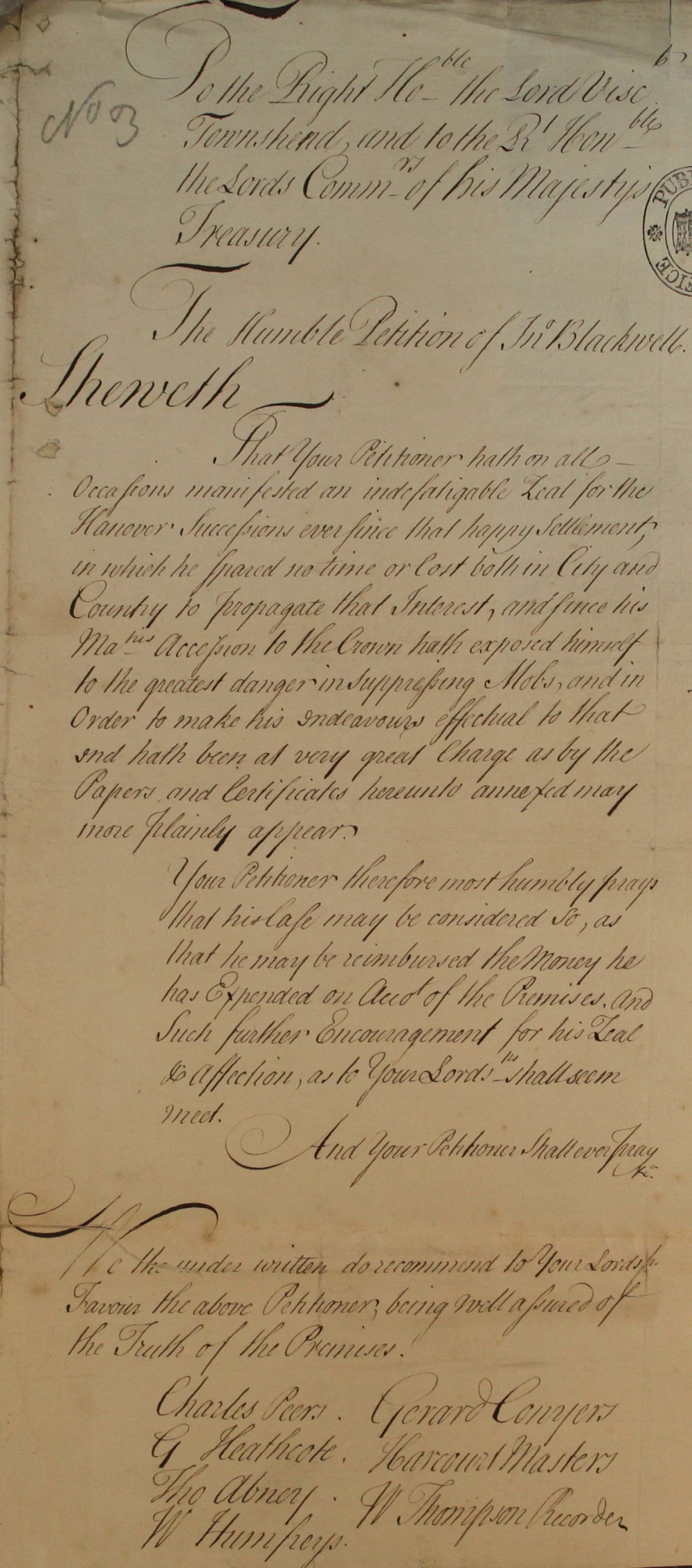
Petition from John Blackwell for expenses involved in organising political support for George I, 21st June, 1715 (SP 41/5 f.25)
Transcript
To the Right Honourable Lord Viscount Townshend and the Right Honourable the Lords Commissioners of his Majesty’s Treasury.
The Humble Petition [request to the king] of John Blackwell
Sheweth
That Your Petitioner hath on all Occasions manifested [shown] an indefatigable [untiring] Zeal [enthusiasm] for the Hanover Successions [Georg I, Elector of Hanover] ever since that happy Settlement*, in which he spared no time or cost both in City and Country to propagate [spread] that Interest, and since his Majesty’s Accession to the Crown hath exposed himself to the greatest danger in suppressing Mobs [putting down riots], and in Order to make his endeavours effectual [efforts successful] to that end hath been at very great charge [great expense] as by the Papers and Certificates hereunto annexed [attached papers and signatures below] may more plainly appear.
Your Petitioner therefore most humbly prays that his case may be considered so, as that he may be reimbursed [paid his expenses] the money he has Expended [spent] on Account of the Premises, And Such further Encouragement for his Zeal & Affection, as to your Lordships shall seem meet.
And your Petitioner shall ever pray,
We the underwritten do recommend to Your Lordship Favour the above Petitioner, being well assured of the Truth of the Premises [statements].
Charles Peers, Gerard Conyers
G. Heathcote, Harcourt Masters
Thomas Abney, W. Thompson Recorder
W. Humfreys
Note: *By the 1701 Act, succession to the throne went to Princess Sophia, Electress of Hanover (James I’s granddaughter) and her Protestant heirs. Sophia died before Queen Anne, who had no surviving children. The throne passed to Sophia’s son, Georg, Elector of Hanover, who became King George I in 1714. The act was later extended to Scotland as a result of the Treaty of Union enacted in the Acts of Union of 1707. The Act also laid down the conditions under which alone the Crown could be held. No Roman Catholic, nor anyone married to a Roman Catholic, could hold the English Crown. The Sovereign now had to swear to maintain the Church of England (and after 1707, the Church of Scotland).
